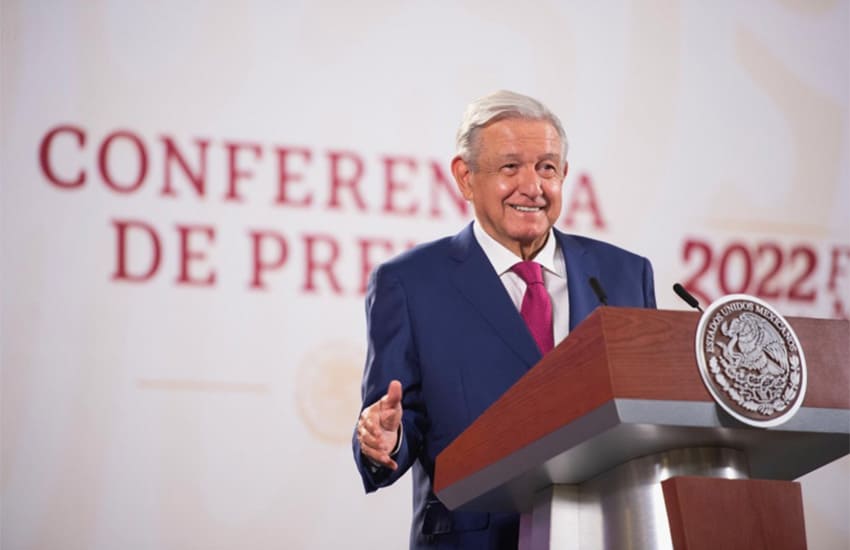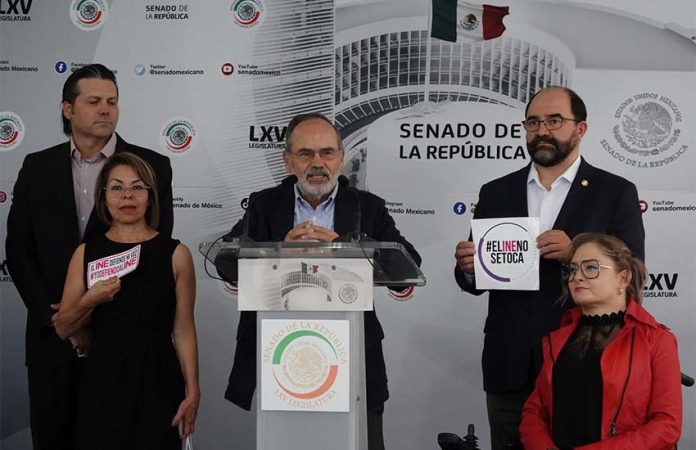Demonstrations will occur throughout Mexico on Sunday to protest the federal government’s controversial electoral reform bill.
The protests, organized by civil society and political organizations, are currently scheduled in 25 Mexican cities as well as at the Mexican consulate in Los Angeles.
The electoral reform seeks to dissolve the National Electoral Institute (INE) and create a new electoral authority, as well as cut funding and replace the 11 INE members, who are chosen by political consensus, with seven directly elected delegates.
This is part of a broader set of proposed changes to the electoral system, including funding cuts for political parties and the elimination of proportional representation seats in Congress.

The protesters have outlined four primary demands:
- a rejection of the electoral reform
- a rejection of changes to any secondary laws negatively impacting the INE’s duties
- a refusal to cut the electoral body’s budget
- maintenance of the constitutionally established method of electing the INE’s members.
President López Obrador stated during his regular press briefing today that the protesters have a right to mobilize, claiming that he will clear Mexico City’s zócalo to make space for the demonstration. In another press briefing, he characterized the mobilization as a protest against his government.
“The people should know that it is a demonstration against us because we are carrying out a policy in favor of the people. [The opposition parties] are classist, racist and undemocratic. They are the ones who participated in electoral fraud and would like to continue having control over the INE,” he said.
The protest’s organizers denied the president’s statements.
“We are calling for a peaceful march, and exclusively in defense of the INE. We are not protesting against anyone,” said organizer Amado Avendaño
While a recent poll conducted by the INE showed that 93% of its 400 respondents support the electoral reform, another conducted by the newspaper Reforma demonstrated that citizens were largely in favor of the electoral authority, with an approval rating of 73%.
Opposition politicians and others have noted that the INE is essential to maintaining Mexico’s young democracy, which emerged just over two decades ago when 70 years of one-party rule by the Institutional Revolutionary Party (PRI) ended.
The opposition has also maintained that dissolving or weakening the INE is non-negotiable. Because the ruling party Morena only holds a simple congressional majority, it needs opposition support to gain the two-thirds vote required for constitutional changes, a situation that provides checks and balances.
The PRI’s willingness to maintain a unified stance with other opposition parties in a coalition against Morena has lately been in doubt, following its support of a bill authorizing the military’s participation in public security tasks until 2028. Nevertheless, PRI president Alejandro “Alito” Moreno said at a press conference on Tuesday that PRI members will join in the protests on Sunday.
“Mexico needs us to unite in this important battle,” Moreno said.
This is the first time that a sitting Mexican president has initiated such sweeping electoral changes before a major election. The country will hold its largest election ever in 2024. Some have contended that the proposed changes against the electoral body could help the president challenge the election results if his party were to lose.
Sunday’s protests are expected to remain peaceful, with organizers already in communication with public security officials. The president also asked members of his Morena party not to provoke demonstrators.
With reports from La Jornada, Reforma, and Latinus
